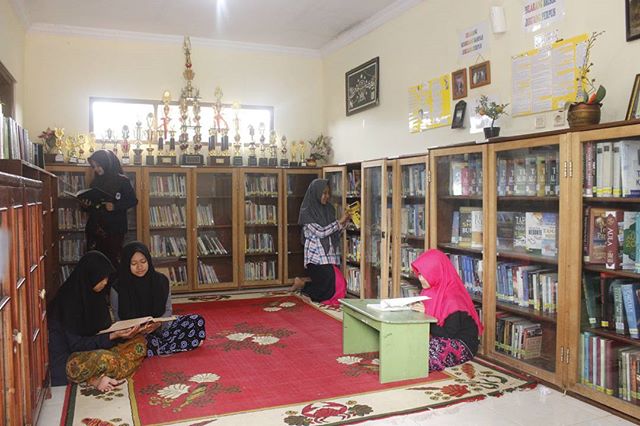The term “literacy” is derived from the Latin word “literatus,” meaning a person who is learning. According to various sources, literacy extends beyond simply reading and writing. It involves understanding, engaging with, using, analyzing, and transforming texts.
In this highly advanced era, literacy has become an essential skill for everyone, including santri. Borrowing the definition from Gus Ach Dhofir Zuhry, a santri is someone who studies in a pesantren. From this definition, it is clear that santri and literacy are inseparable. As the next generation tasked with spreading religious knowledge across the globe, literacy is key for santri to realize their mission.

However, the support santri receive in fostering a culture of literacy is still far from optimal. Some pesantren lack any literacy initiatives at all. This can be attributed to several factors, including the absence of library facilities, outdated book collections, limited technological access, and other challenges.
That said, these issues cannot be the sole reasons for a lack of literacy engagement. Personal disinterest in literacy may also play a role. The earlier generations of santri, who became influential scholars in their communities, are living proof that despite limited resources, they were able to cultivate their literacy skills. Their perseverance helped them achieve their dreams. Therefore, fostering a culture of literacy among santri must be a priority for all of us.
There are several efforts that can be made to encourage literacy within the santri community:
First, providing reading spaces. Creating accessible reading spaces is crucial for fostering literacy. A dedicated area where santri can read will naturally ignite their interest in literacy. This is especially true when the books available meet their needs and interests, further motivating them to read. Additionally, this will positively impact their writing skills, as reading is the fuel for writing. The more one reads, the easier writing becomes.








